
Find Help
More Items From Ergsy search
-

What should I do if I can't afford a lawyer for the eviction process?
Relevance: 100%
-
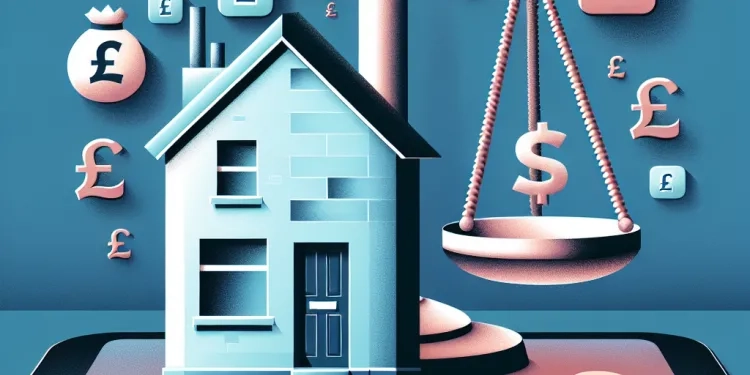
Can I appeal a court's eviction decision?
Relevance: 60%
-
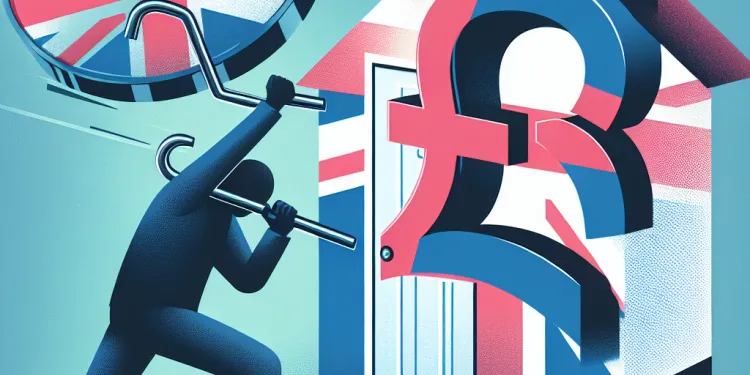
How can I contest or challenge the eviction?
Relevance: 52%
-
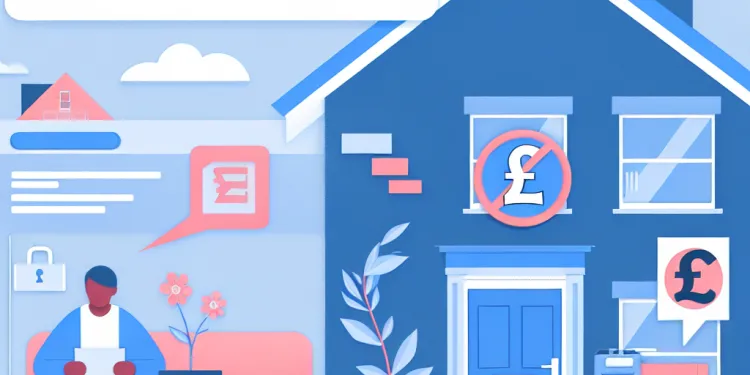
What can I do if my landlord wants to evict me?
Relevance: 51%
-
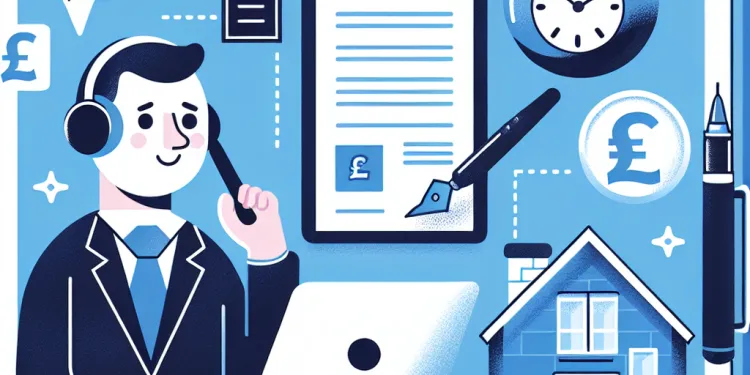
Can I negotiate with my landlord to avoid eviction?
Relevance: 51%
-
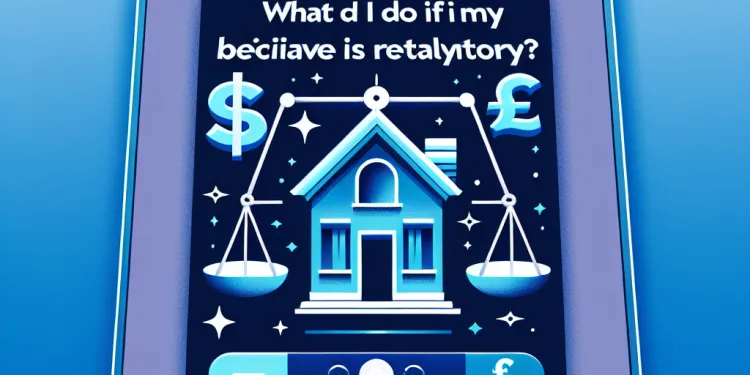
What can I do if I believe my eviction is retaliatory?
Relevance: 47%
-
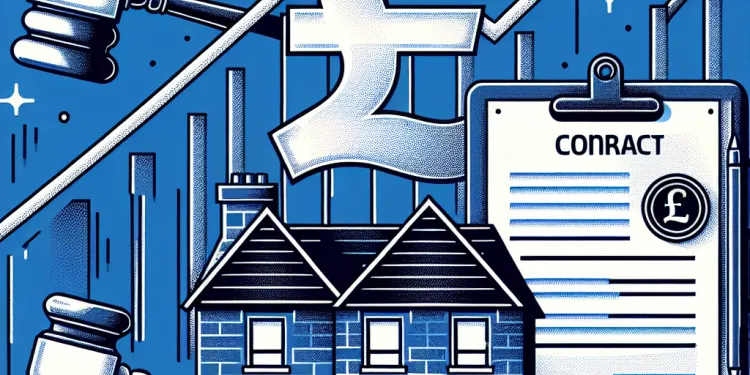
Are there changes to the eviction process?
Relevance: 47%
-

What are my rights during the eviction process?
Relevance: 46%
-
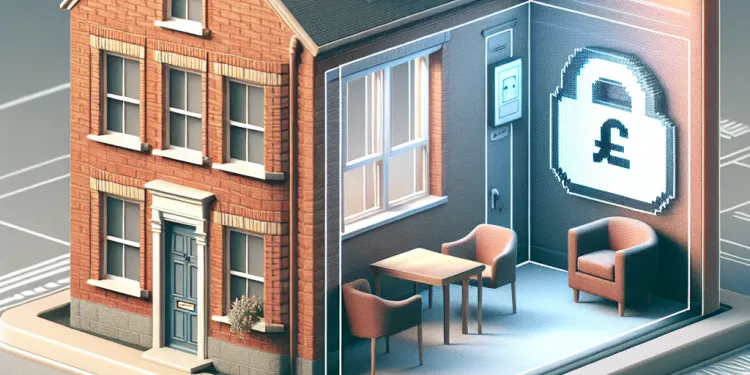
Can a landlord lock me out or remove my belongings to evict me?
Relevance: 44%
-

What role do lawyers play in drug offence cases?
Relevance: 43%
-
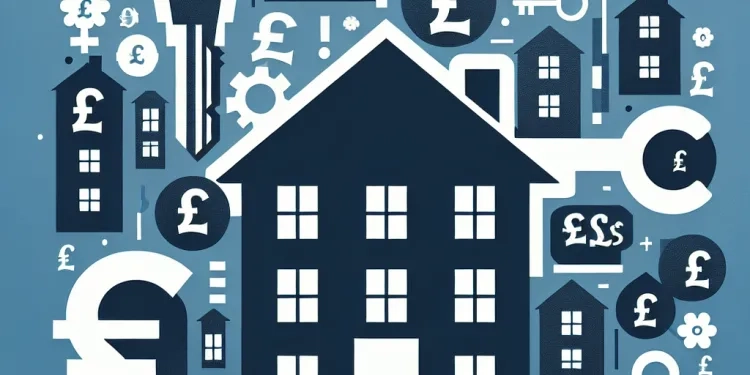
What are the consequences of having an eviction on my record?
Relevance: 43%
-
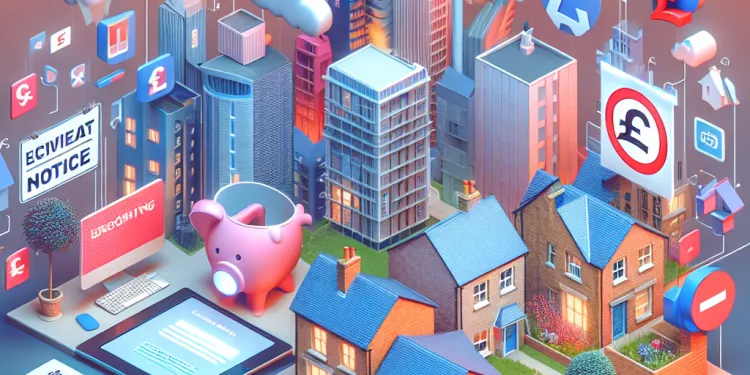
What should I do if I receive an eviction notice from my landlord?
Relevance: 43%
-
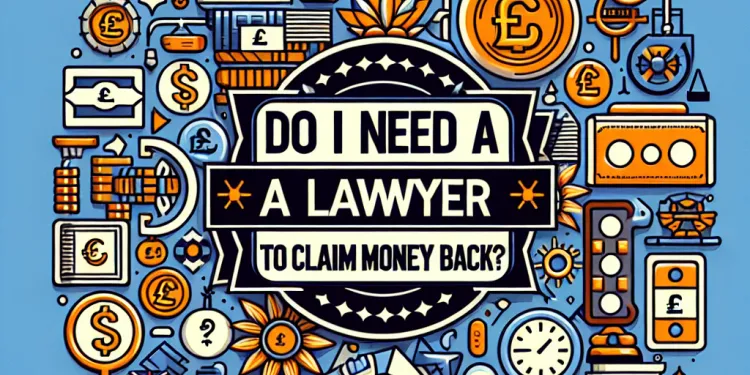
Do I need a lawyer to claim money back?
Relevance: 43%
-

How can I prepare for an eviction court hearing?
Relevance: 43%
-
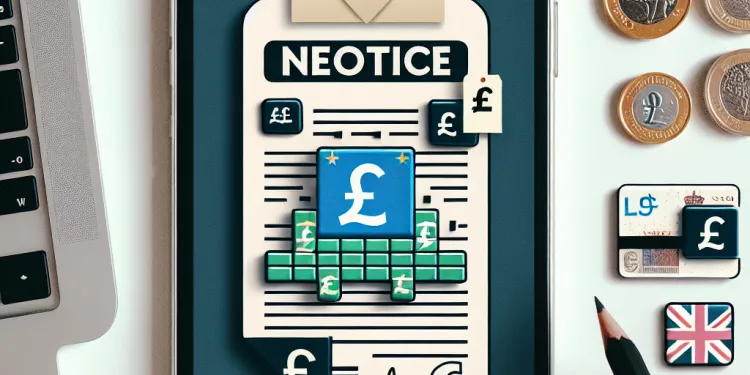
Has the notice period for eviction changed?
Relevance: 43%
-

Does filing for bankruptcy stop an eviction?
Relevance: 43%
-

Are there any government programs that can help me avoid eviction?
Relevance: 42%
-
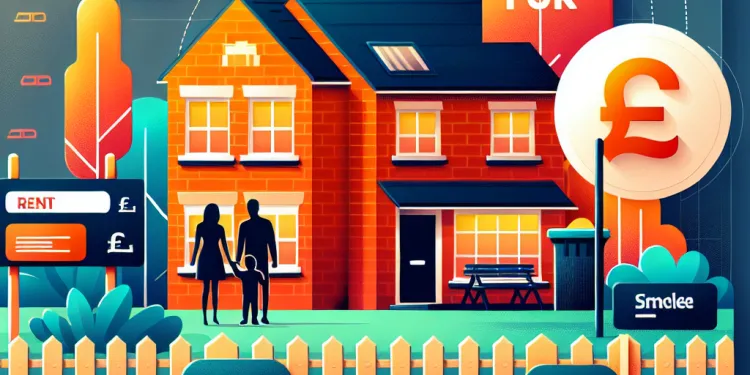
Can a landlord evict me for complaining about property conditions?
Relevance: 42%
-

Can eviction affect my credit score?
Relevance: 42%
-

How do I find alternative housing quickly if evicted?
Relevance: 42%
-
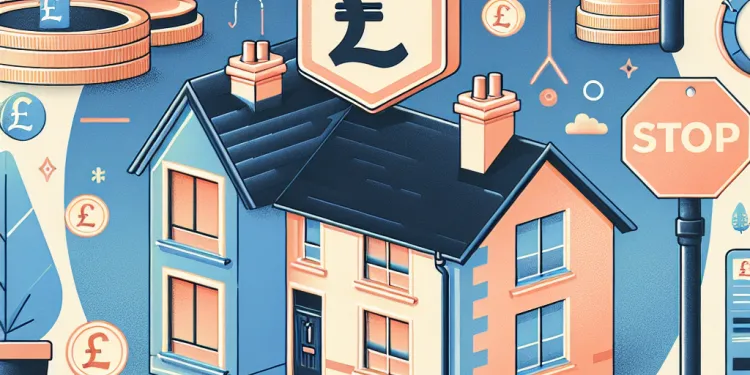
Can I stop an eviction if I catch up on rent payments?
Relevance: 42%
-
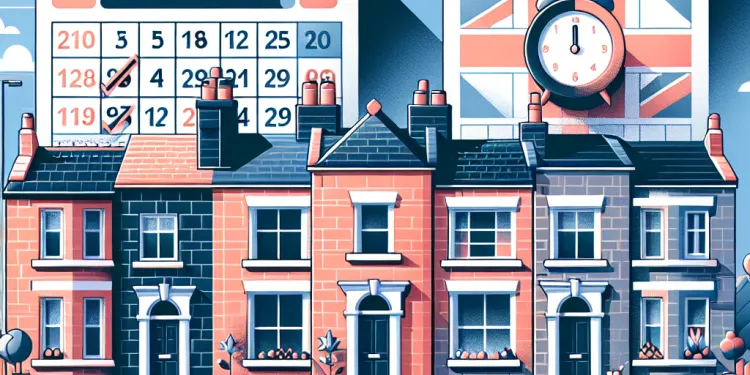
What happens if I stay beyond the eviction deadline?
Relevance: 41%
-

Can my landlord evict me without providing a reason?
Relevance: 41%
-

How long do I have to move out after receiving an eviction notice?
Relevance: 41%
-
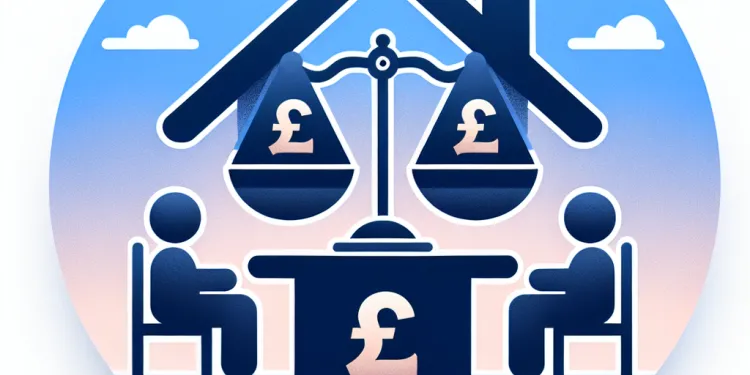
Is mediation an option to resolve eviction disputes?
Relevance: 40%
-

Does the Attorney General in the UK have to be a lawyer?
Relevance: 40%
-
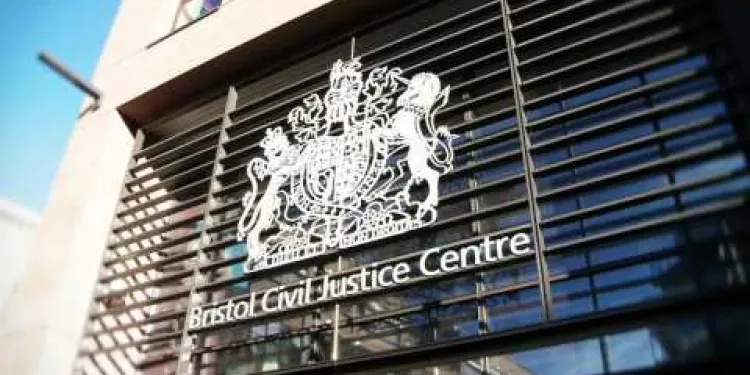
The Family Court without a Lawyer - Video 1 of 3
Relevance: 39%
-
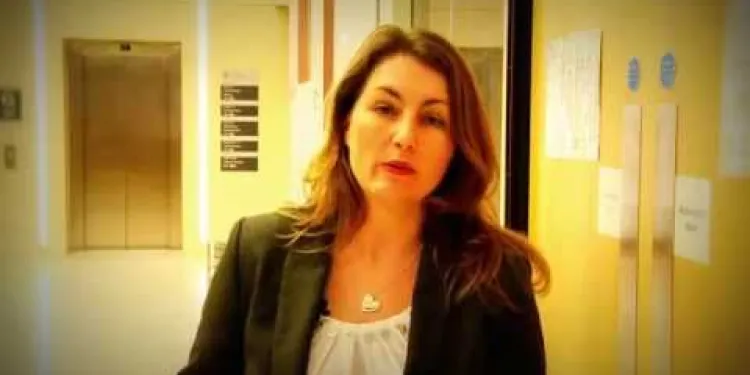
The Family Court without a Lawyer
Relevance: 38%
-

Is cremation more affordable than burial in the UK?
Relevance: 37%
-
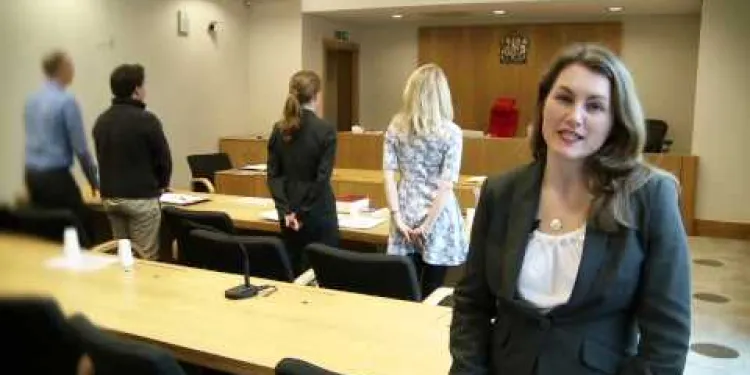
The Family Court without a Lawyer - Video 2 of 3
Relevance: 37%
-
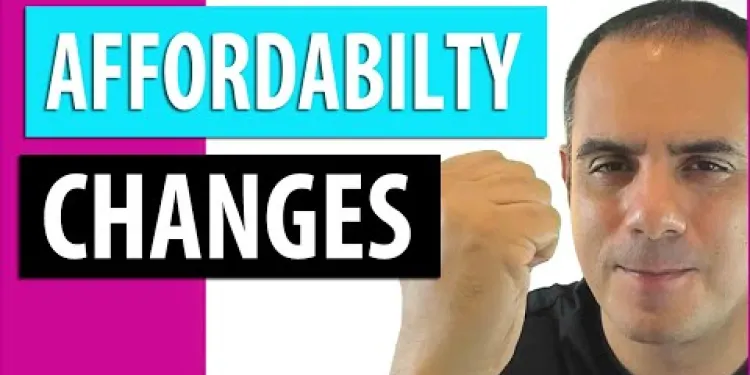
Mortgage Regulator removes the need for further affordability stress tests
Relevance: 34%
-
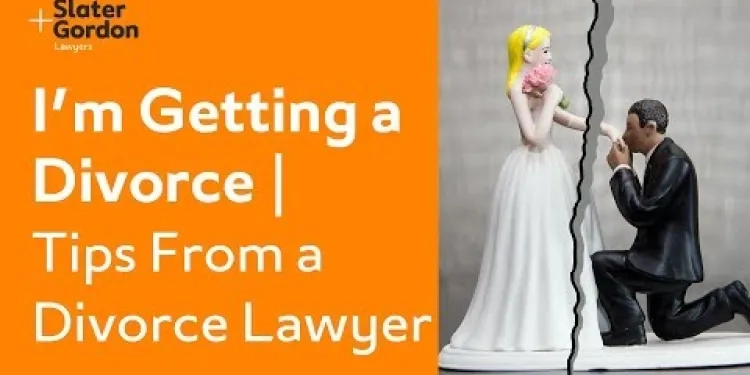
I'm Getting a Divorce | Tips From a Divorce Lawyer
Relevance: 31%
-

What happens if i can not afford to repay my student loan?
Relevance: 31%
-
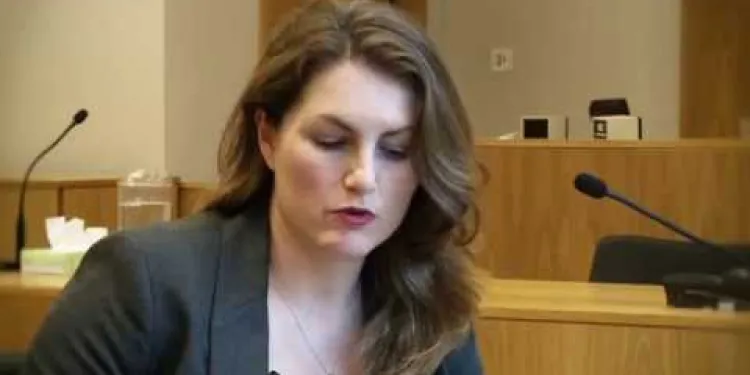
The Family Court without a Lawyer - Video 3 of 3
Relevance: 30%
-

When should you consult a lawyer about a boundary dispute?
Relevance: 29%
-
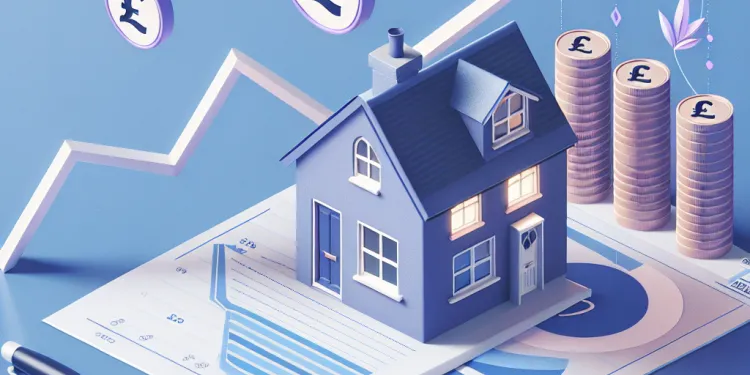
What should I do if I can't afford my mortgage payments due to rising interest rates?
Relevance: 27%
-

What should I do if I can't afford to repay my student loan?
Relevance: 26%
-

What can tenants do if they are affected by the cuts?
Relevance: 24%
-
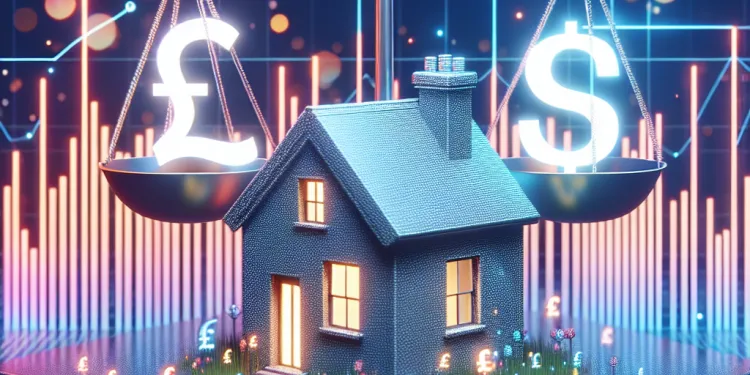
What are the new Tenancy Law Reforms in the UK in 2025?
Relevance: 22%
-

What is the relationship between rising rents and housing benefit cuts?
Relevance: 22%
Understanding Your Situation
If you're facing eviction in the UK and can't afford a lawyer, it's essential to remain calm and understand the situation. Eviction can be a stressful experience, but there are resources and steps you can take to protect yourself and potentially resolve the issue without incurring significant legal expenses.
Seek Assistance from Local Authorities
Your first step should be to contact your local council's housing department. They often have duty officers or housing advisors who can provide guidance specific to your case. These professionals might offer free assistance and can help you understand your rights and obligations as a tenant.
Utilize Free Legal Resources
Several organizations in the UK offer free legal advice and representation for individuals who cannot afford a lawyer. Organizations like Shelter and Citizens Advice provide expert advice on housing issues, including eviction. You can contact them via their helplines or visit their websites for more information and support.
Check Your Eligibility for Legal Aid
Depending on your financial situation, you might qualify for legal aid in the UK. Legal aid can cover the cost of legal advice or representation in court. The UK government's website provides a tool to help you determine your eligibility for legal aid, considering factors such as income, savings, and the specifics of your case.
Seek Help from Community Legal Clinics
Community legal clinics or law centres across the UK offer free legal advice and sometimes representation. These centres are staffed by volunteer lawyers or legal professionals who provide services to those who cannot afford private lawyers. Search online for a legal clinic near you and arrange an appointment as soon as possible.
Represent Yourself in Court
If you cannot secure free legal aid or assistance, you may have to represent yourself in court. While this can be daunting, preparing thoroughly can help you make the best case possible. Gather all relevant documents, such as your lease agreement, payment records, and any correspondence with your landlord. There are resources available to guide you through the process of representing yourself, including online guides and community workshops.
Negotiate with Your Landlord
Consider negotiating directly with your landlord to reach an amicable agreement. This could involve setting up a payment plan for any arrears or agreeing on a move-out date. Communication and willingness to compromise can sometimes prevent the need for legal proceedings altogether, saving time and money for both parties.
Conclusion
Facing eviction without the means to hire a lawyer is challenging, but options are available to you. By utilizing free resources, seeking assistance from local authorities, and exploring alternative resolutions, you can navigate this difficult situation more effectively.
Understanding Your Situation
If you are being told to leave your home in the UK and can't pay for a lawyer, stay calm and learn about your situation. Being told to move out can be scary, but there are things you can do to help yourself. You might not need to spend a lot of money on a lawyer.
Seek Help from Local Authorities
The first thing you should do is talk to your local council's housing department. They have people who can help you understand what you can do. These people can tell you about your rights and what you need to do as a renter.
Use Free Legal Resources
There are groups in the UK that give free advice if you cannot pay for a lawyer. Groups like Shelter and Citizens Advice know a lot about housing problems. You can call them or visit their websites to get help.
See If You Can Get Legal Aid
You might be able to get legal aid if you don't have much money. Legal aid helps pay for a lawyer. The UK government has a website tool that checks if you can get this help, based on your money and your situation.
Visit Community Legal Clinics
There are places called community legal clinics or law centres that give free legal advice. Volunteers who know the law help people who cannot pay for a lawyer. Look for a clinic near you online and make an appointment quickly.
Represent Yourself in Court
If you can't get free legal help, you might need to speak for yourself in court. This can feel hard, but being ready can help. Collect important papers, like your lease and money payment records. There are guides and workshops that can help you learn how to do this.
Talk to Your Landlord
You can also talk to your landlord to try to solve the problem. You might make a plan to pay back rent or agree on a date to move out. Talking and working together can sometimes avoid going to court, saving time and money.
Conclusion
Facing having to leave your home without a lawyer is tough, but there are ways to get through it. By using free help, talking to local officials, and finding different ways to solve the problem, you can handle this hard time better.
Frequently Asked Questions
What should I do if I can't afford a lawyer for the eviction process?
You can seek assistance from legal aid organizations, which often provide free or low-cost legal services to those who qualify.
Are there any resources available for free legal advice for evictions?
Yes, many communities have legal aid societies or clinics that offer free advice and representation for individuals facing eviction.
Can I represent myself in an eviction case?
Yes, you have the right to represent yourself in court, but it may be beneficial to seek guidance from legal aid or advocacy groups.
Where can I find legal aid organizations to help with eviction?
You can search online for local legal aid societies or contact your local bar association for referrals.
What is a self-help legal center for eviction matters?
Self-help centers provide resources and guidance for individuals who are representing themselves in legal matters, including eviction.
Can community organizations help with eviction defense?
Yes, many community organizations offer support and resources for tenants facing eviction.
How can tenant unions assist in eviction cases?
Tenant unions can provide support, advocacy, and sometimes legal advice to tenants who are facing eviction.
Are there any online resources for learning about eviction defense?
Many legal aid websites and tenant rights organizations provide online resources and guides for eviction defense.
Can the court provide any assistance if I can't afford a lawyer?
Some courts offer self-help centers or clinics where you can get assistance completing forms and understanding the eviction process.
Is mediation a possible alternative to eviction court?
Yes, mediation can be an effective way to resolve disputes without going to court, and it is often less costly.
How do I qualify for free legal aid in an eviction case?
Eligibility for legal aid often depends on your income, assets, and sometimes the specific circumstances of your case.
Should I talk to my landlord if I am facing eviction?
Yes, open communication can sometimes lead to an agreement or payment plan that can help avoid eviction.
Are there any emergency funds available to help with rent?
Some communities have emergency rental assistance programs that can provide temporary financial aid to prevent eviction.
How can I prepare if I have to go to eviction court alone?
Gather all relevant documents, research your rights, and consider seeking guidance from self-help legal centers or online resources.
Can social services help with an eviction situation?
Yes, social services often provide referrals to legal assistance programs and can help with accessing resources for housing stability.
What documentation should I prepare for an eviction case?
You should gather rental agreements, payment records, communication with your landlord, and any notices related to the eviction.
Do I have the right to request a postponement if I need more time to get legal help?
You can request a continuance from the court, but it is up to the judge to decide whether to grant it.
What are my rights as a tenant facing eviction?
Your rights vary by location, but generally include proper notice, a legal reasons for eviction, and the opportunity to contest the eviction in court.
Can I appeal an eviction judgment if I lose in court?
Yes, you may be able to appeal the decision, but there are often strict deadlines and procedures, so seek assistance promptly.
How can local housing authorities assist with an eviction?
Local housing authorities can provide information on tenant rights and may offer programs to assist with housing stability.
What can I do if I can't pay for a lawyer to help with eviction?
If you are being evicted and can't pay for a lawyer, here are some things you can do:
- Look for free or low-cost legal help in your area. Some groups can help people who can't afford a lawyer.
- Ask someone you trust for advice or support, like a family member or friend.
- Visit a library to find information. They might have computers you can use to look up help online.
- Write down everything that happens. It can help you keep track of details and dates.
Remember, asking for help is okay. There are people and places that want to help you.
You can get help from legal aid groups. They often give free or cheap help if you need a lawyer and meet certain rules.
Where can I get free help with evictions?
If you need help because you might lose your home, you can find free legal advice. Here are some ways to get help:
- Legal Aid: This is free help from a lawyer. Check if you can get this help where you live.
- Online Support: Some websites give free advice about housing and evictions.
- Community Centers: Visit a local center. They might know where you can get free help.
- Libraries: Libraries can have information about services that help people with housing problems.
If reading is hard, you can ask someone you trust to read or explain things to you.
Yes, lots of places have groups that help people with the law. These groups can give you free advice and help if you might lose your home.
Can I be my own lawyer if I have to leave my home?
Yes, you can speak for yourself in court. But, it might be a good idea to ask for help from people who know the law really well, like legal aid or advocacy groups.
How can I get free legal help if I am being forced to move out?
If you need help with eviction (being made to leave your home), you can find people who can help you for free. They are called legal aid organizations. Here are some steps and tools to find them:
- Ask a social worker: They can tell you where to go for help.
- Library help: Visit your local library. They can help you find information.
- Online search: Use the internet to search for "free legal help for eviction near me."
- Legal aid phone line: There may be a number you can call to get help.
Remember, it is important to get help quickly if you are worried about losing your home.
You can look on the internet to find local places that help with legal issues for free. You can also call your local lawyer group to get help finding someone.
What is a help center for eviction problems?
A help center for eviction problems is a place that gives advice and support if you might lose your home. They can help you know your rights and what to do next.
If you find reading hard, ask someone to go with you. You can also use a computer to read things out loud or listen to audiobooks to understand better.
Self-help centers give people tools and help when they are dealing with legal problems, like being asked to move out of their home.
Can groups in the community help stop people from losing their homes?
Yes, groups in the community can help people so they don't have to leave their homes. They might help with advice or talk to the landlord. People can also use tools that help them understand what to do. It is a good idea to ask for help if you need it.
Yes, there are many groups that can help people who might lose their homes. These groups give support and advice to those in need.
How can renter groups help when someone might lose their home?
Renter groups are people who work together to help renters. If a renter might lose their home, these groups can help in different ways:
- Give advice: They can tell you what to do and who to talk to for help.
- Support: They can stay by your side when you speak to your landlord or go to meetings about your home.
- Send letters: They can write letters to the landlord to explain why you should stay in your home.
- Know your rights: They help you understand what you can do and what rights you have.
- Find a lawyer: They can help you get a lawyer if you need one.
If you are worried about losing your home, joining a renter group can be very helpful. They are there to help you feel stronger and not alone.
Tenant unions can help people who rent homes. They give support and advice. They can also help if you need to go to court because you might lose your home.
If you need more help, you can ask someone to read this with you or use a computer tool that reads out loud.
Can I find help online to learn about stopping eviction?
There are websites that can help you if you are worried about losing your home.
These websites have helpful guides and information to support you.
If you need someone to talk to, you can also contact tenant rights groups.
These groups can give you advice and tell you what to do next.
Can the court help me if I can't pay for a lawyer?
If you don't have money for a lawyer, the court can sometimes help. Here is how:
- You might get a free lawyer. This is called "legal aid."
- The court can tell you where to find help. You can ask them for advice.
- You can use tools like LawHelp to find information.
If you need help reading or understanding, ask someone you trust to help you.
Some courts have places where you can go for help. These places can help you fill out forms and understand what happens if you have to leave your home.
Can we use mediation instead of going to eviction court?
Sometimes, you might have problems with someone about staying in a home. Instead of going to a big court, you can talk it out. This is called mediation.
Mediation is when a person who is not on anyone's side helps both sides talk. This person is called a mediator. The mediator helps people find a way to agree.
Mediation can be a good way to fix problems without going to court. It can be less scary and less expensive.
If you want to try mediation, you can ask someone to help you find a mediator. You can also ask a friend or family member to help you understand.
Yes, mediation can help solve problems without going to court. It usually costs less money too.
How can I get free legal help if I might be evicted?
To get legal help, you must show how much money you earn, what you own, and sometimes, the details of your problem.
Should I talk to my landlord if I might lose my home?
If you think you could lose your home, you should talk to your landlord. Here are some tips:
- Tell your landlord if you are having trouble paying rent.
- Ask if you can pay in smaller amounts.
- Look for someone who can help, like a friend or a local advice service.
- Write down what you and your landlord talk about.
It’s important to ask for help and try to fix the problem early.
Yes, talking openly can sometimes help make a plan to pay the rent. This plan can stop you from losing your home.
Can I get help to pay my rent in an emergency?
Do you need money quickly to pay your rent? You might be able to get some help!
You can check if there are any special funds. These are called "emergency funds."
Ask someone you trust to help you look for these funds. They might talk to your local council or charities.
If you use a computer, there are tools like "speech-to-text" that can help you search.
Some places have special programs to help you pay rent if you are having money problems. These programs can help you so you don’t have to leave your home.
What can I do to get ready if I have to go to eviction court by myself?
Collect all important papers you have. Learn about what you can do and what your rights are. You might want to get help from places like self-help legal centers. You can also look for help online.
Can social services help if you might lose your home?
If you might have to leave your home, social services can help. They can talk to you about what to do. They can also help you find a new place to live. You can ask them for advice.
Here are some things you can do:
- Call social services for help.
- Talk to a trusted adult about what is happening.
- Look online for more information and support.
These steps can make things easier for you.
Social services can help you find lawyers. They can also help you find a safe place to live.
What papers do I need for an eviction case?
Get these papers ready if you have to go to court for an eviction:
- Lease Agreement: The paper that shows the rules for living in your home.
- Payment Records: Copies of rent payments to show what has been paid.
- Notices: Any letters you got about the eviction.
- Communication: Emails or messages between you and your landlord.
- Photos or Videos: Pictures or video that show the condition of your home.
Tip: Use a folder or a box to keep all your papers in one place. This way, things are easy to find.
Collect papers that show you rent the place, proof you have paid rent, letters between you and your landlord, and any papers about being asked to leave.
Can I ask for more time to get a lawyer?
You can ask the court to have more time, but the judge will decide if you can have it.
What can I do if my landlord wants me to leave my home?
If your landlord says you have to leave your home, don't worry. There are things you can do. Here are some tips:
- Check your rental agreement to see what it says about eviction.
- Ask your landlord to explain why they want you to leave.
- Talk to someone who knows about housing, like a housing advisor or lawyer.
- You can call a helpline for support or advice.
Remember, you have rights and there are people who can help you. You are not alone.
Your rights can be different based on where you live. But usually, you should get a notice before you have to leave. There must be a good reason for you to be asked to leave your home. You also have the chance to talk to a judge if you don’t agree with having to leave.
Can I ask for another chance if I lose in court and have to move out?
If you go to court and lose, you might have to move out of your home. But you can ask the court to look at your case again. This is called an "appeal."
To appeal, you need to tell the court why you think they made a mistake. You usually have to do this quickly, so don't wait long.
It helps to have someone with experience, like a lawyer, to help you. They can explain what to do and help you write down why you want another chance.
Yes, you can ask for the decision to be looked at again. But you have to ask quickly because there are important rules and times to do this. Get help as soon as you can.
How can local housing help if you have to leave your home?
Your local housing office can tell you about your rights as a renter. They might also have programs to help you keep your home.
Useful Links
This website offers general information and is not a substitute for professional advice.
Always seek guidance from qualified professionals.
If you have any medical concerns or need urgent help, contact a healthcare professional or emergency services immediately.
Some of this content was generated with AI assistance. We’ve done our best to keep it accurate, helpful, and human-friendly.
- Ergsy carfully checks the information in the videos we provide here.
- Videos shown by Youtube after a video has completed, have NOT been reviewed by ERGSY.
- To view, click the arrow in centre of video.
- Most of the videos you find here will have subtitles and/or closed captions available.
- You may need to turn these on, and choose your preferred language.
- Go to the video you'd like to watch.
- If closed captions (CC) are available, settings will be visible on the bottom right of the video player.
- To turn on Captions, click settings .
- To turn off Captions, click settings again.
More Items From Ergsy search
-

What should I do if I can't afford a lawyer for the eviction process?
Relevance: 100%
-

Can I appeal a court's eviction decision?
Relevance: 60%
-

How can I contest or challenge the eviction?
Relevance: 52%
-

What can I do if my landlord wants to evict me?
Relevance: 51%
-

Can I negotiate with my landlord to avoid eviction?
Relevance: 51%
-

What can I do if I believe my eviction is retaliatory?
Relevance: 47%
-

Are there changes to the eviction process?
Relevance: 47%
-

What are my rights during the eviction process?
Relevance: 46%
-

Can a landlord lock me out or remove my belongings to evict me?
Relevance: 44%
-

What role do lawyers play in drug offence cases?
Relevance: 43%
-

What are the consequences of having an eviction on my record?
Relevance: 43%
-

What should I do if I receive an eviction notice from my landlord?
Relevance: 43%
-

Do I need a lawyer to claim money back?
Relevance: 43%
-

How can I prepare for an eviction court hearing?
Relevance: 43%
-

Has the notice period for eviction changed?
Relevance: 43%
-

Does filing for bankruptcy stop an eviction?
Relevance: 43%
-

Are there any government programs that can help me avoid eviction?
Relevance: 42%
-

Can a landlord evict me for complaining about property conditions?
Relevance: 42%
-

Can eviction affect my credit score?
Relevance: 42%
-

How do I find alternative housing quickly if evicted?
Relevance: 42%
-

Can I stop an eviction if I catch up on rent payments?
Relevance: 42%
-

What happens if I stay beyond the eviction deadline?
Relevance: 41%
-

Can my landlord evict me without providing a reason?
Relevance: 41%
-

How long do I have to move out after receiving an eviction notice?
Relevance: 41%
-

Is mediation an option to resolve eviction disputes?
Relevance: 40%
-

Does the Attorney General in the UK have to be a lawyer?
Relevance: 40%
-

The Family Court without a Lawyer - Video 1 of 3
Relevance: 39%
-

The Family Court without a Lawyer
Relevance: 38%
-

Is cremation more affordable than burial in the UK?
Relevance: 37%
-

The Family Court without a Lawyer - Video 2 of 3
Relevance: 37%
-

Mortgage Regulator removes the need for further affordability stress tests
Relevance: 34%
-

I'm Getting a Divorce | Tips From a Divorce Lawyer
Relevance: 31%
-

What happens if i can not afford to repay my student loan?
Relevance: 31%
-

The Family Court without a Lawyer - Video 3 of 3
Relevance: 30%
-

When should you consult a lawyer about a boundary dispute?
Relevance: 29%
-

What should I do if I can't afford my mortgage payments due to rising interest rates?
Relevance: 27%
-

What should I do if I can't afford to repay my student loan?
Relevance: 26%
-

What can tenants do if they are affected by the cuts?
Relevance: 24%
-

What are the new Tenancy Law Reforms in the UK in 2025?
Relevance: 22%
-

What is the relationship between rising rents and housing benefit cuts?
Relevance: 22%


